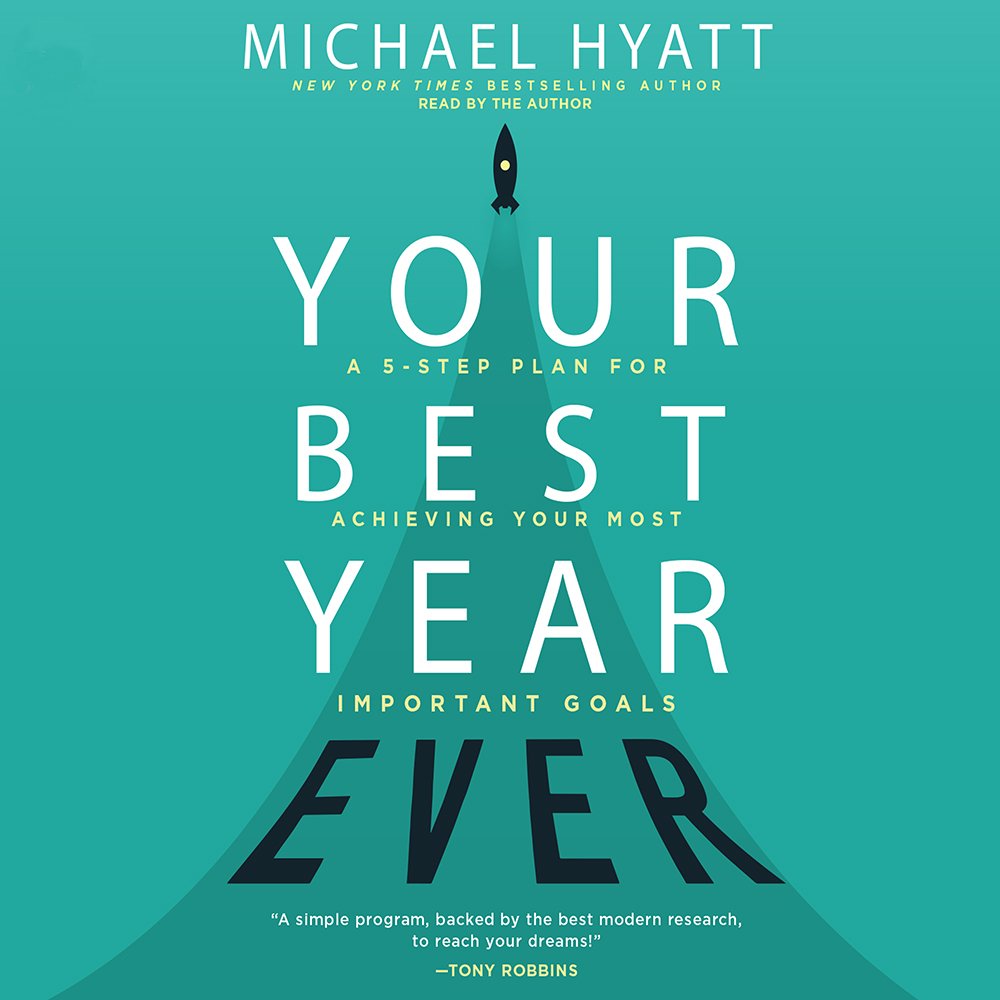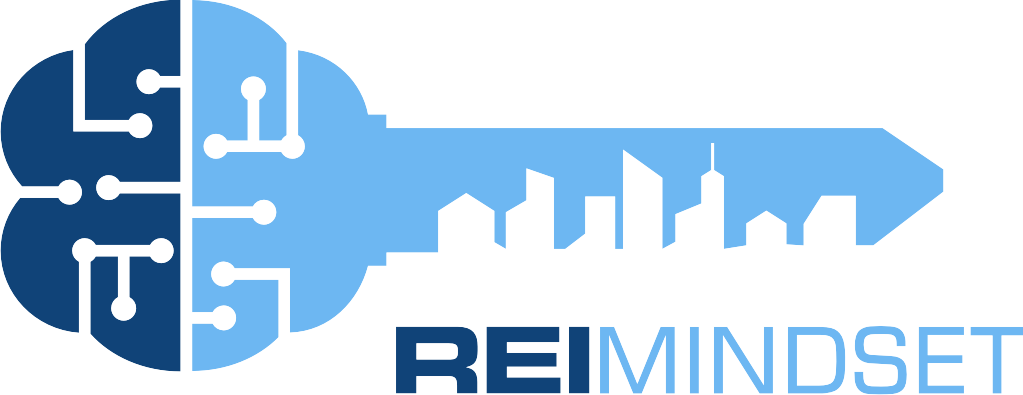

I still like physical hard copy books.
In an age where we already stare at screens too much, it is nice to have the book in my hands.
There is a ritual I do when I get a new book. I open it to the back of the cover and sign my name. Under that, I write the date that I first picked it up.
The date inside my copy of Your Best Year Ever is December 27, 2019.
I thought to myself, what a perfect book to read to end 2019 kick-off 2020. What a nice notion!
By now all of us are over discussing the past two years and we would be hard-pressed to say they were truly our best ever.
However, I have been testing the principles in this book for the past two years and I believe now is the opportune time to talk about it.
Just when you thought you were past the posts about New Year goals here is one more to push you to get your mind right for the upcoming year!
A quick word about New Year resolutions. I am not a huge fan of them…
I think as human beings once we break a promise to ourselves (which is what a resolution really is, a promise) we go F*** it, I’m done with that. That is why something like 92.7529% of people who make resolutions end up not following through.
However, I do recognize the coming of a new calendar year makes sense as a time of reflection and reevaluation. We value years and measure our time, dates, ages, anniversaries, and important milestones by years.
What is great about this book isn’t a 365-day process, but rather one that is focused on attaining goals.
Why goals?
Because you have to aim at something to hit it. If there is something you want then you need to clearly define it and create that map to get there. That is what this book is about.
Here are my top three lessons.
Lesson 1: It Starts with Your Mind
We wouldn’t be REI Mindset without starting here. To have the best year every you have to know your Why.
We’ve explored this question before.
The key insight is, it is important to understand the core motivations for your actions.
Your Why isn’t just about making money or not having a boss. There is a deeper more impactful and meaningful reason you choose to invest in real estate.
The freedom and assets to do what, go where, spend time with whom all feed into why any of this matters.
“Resources are never – and I mean never – the main challenge in achieving our dreams” – Michael Hyatt
After knowing our Why, comes the important concept of reframing. This changes the way we look and think about situations and the meanings attached.
- Does losing a deal mean that we got rejected or is it an opportunity to improve?
- If we underestimate our budget and get burned is that because we are stupid and worthless or is it a chance to reexamine what we thought we knew about material costs?
- If we rent to the wrong person do we lose faith in all people or do we build a better screening system?
The way we think about and talk to ourselves is immensely important!
How much better would it be if we treated ourselves as someone we care about?
Human beings can forgive others faster than we can forgive ourselves. That doesn’t make much sense or have much utility.
I’ve recommended coaching and mentorship a great deal in the past. If you screw something up do you expect that your coach/mentor will jump on you and berate you for making a mistake? No. I hope not anyway.
Don’t talk down to yourself.
Tied into the last point is a lesson on focus.
As real estate investors, we are always focused on closing the deal. As a matter of fact, our ABCs are Always Be Closing. However, that focus is flawed because it is looking forward and expecting an outcome.
We do not control outcomes.
- We cannot control if a motivated seller wants to stay, delay, or go away.
- We cannot control the actions of our renters.
- We definitely cannot control the local Residential Plan Review Division and speed up their far too long decision-making process.
Instead, we should focus on our own performance and how we can improve. Performance can be anything.
- It can be how well we cold call.
- Our performance can be how accurately we estimate ARV and repairs.
- It can be how well we negotiate or write blog posts.
These are the things that we can control. More than just having a sense of control, we have the ability to improve our skill sets, and if there is something true about the world, it rewards highly developed, necessary, and rare skill sets.
Lesson 2: SMARTER Goals
We have definitely talked about SMART goals in the past. You are probably familiar with these already:
S– Specific
M– Measurable
A– Actionable
R– Relevant
T– Timebound
As such, I won’t go over the above again in great detail. What the author cleverly adds is the ER portion.
E – Exciting
R – Risky
This is the first time that I have heard these two and honestly, I like it.
Exciting is important as a motivator.
If you are not excited about a goal then should it really be something you put effort into? If you are a long-term reader of the site you know that I prefer disciple to motivation, but having something that you look to with enthusiasm and eagerness makes a good goal.
Risky was the most interesting one to me. I initially thought it was too similar to exciting, but upon further reflection it makes sense. What Risky really means is that we need to set the bar higher.
If our goals get us to play safe then our level of effort is one designed to play safe. If we aim high, shoot for the stars then land on the moon we are still better than the normal earthlings. That is how that saying goes right?
Bottom line, be brave. Be bold. Push outside the comfort zone.
Tips on how to implement Risky:
- Shorten the length of time you give yourself to attain your goal
- Increase the number/volume of the goal. Want to make x dollars next year? 10x it. You know you’ve heard that before.
- Pick something that makes you nervous to even think about going after. Yes, that one. That’s the new goal. Your first goal was a stepping stone, sometimes in life, you can skip steps.
Lesson 3: Action
Simple, just start.
To take massive action you need to start somewhere. Nose to the grindstone. Head down. Mat time.
We know this is what it takes and yet sometimes we waste our time. If there is anything that the past two years have taught us, it is we don’t know how much time is left and we don’t know how we will get to spend it.
Therefore, our success cannot wait.
We cannot take the slow path because the world now moves too fast.
I know this because I am the classic overthinker plagued by analysis paralysis. I love analyzing properties, then neighborhoods, then socio-economic paths of progress… By the time I think about what I can offer to a seller my competitor already met with the seller and has a contract. That is the performance I need to work on this year.
Put the plan into action. The author provides solid tips that I have been implementing and encourage you to as well:
- Smaller steps – the next step isn’t to close a deal. The next step is to pick up the phone. The step after that is to dial a number. Ect, ect. Focus on that. To land a deal you don’t need to see the shore, you just need to start swimming.
- Lower the bar – this is similar to reframing. Change what success looks like in your mind. Success doesn’t have to be a signed contract (which you don’t control). Success can be making 30 cold calls today (something you have full control over and can measure).
- Easiest task first – build momentum. You know the guy that writes down make a list so that he can cross it out? I’m that guy. It helps. It’s a small dopamine hit that I want to keep going. While we are at it, write things down. Have something in front of you that is staring at you and you are more likely to accomplish it because there is no better feeling than a checkmark next to a To-Do item.
“A goal is not just about what you accomplish. It’s about what you become” – Michael Hyatt
Take on the identity of someone that gets things done.
The goal is what we want to achieve, but in the end, real progress is made when we focus on the person we want to become. That individual is the type of person who can achieve that goal.
You are not investing in real estate, you are a real estate investor.
Did you feel that difference? There is weight to it, responsibility, accountability.
Someone who invests in real estate can just be Average Joe with a couple of dollars on Fundrise. No, you are a real estate investor. You are a professional. You are an expert. If the goal is to flip 20 properties this year, Average Joe Fundrise cannot do that. You can.
Lastly, learn to enjoy the process. If we like what we do we are going to spend more time studying, learning, implementing, and working.
Not everything in real estate is roses. Sometimes the tenants rip out the roses and plant drugs.
But the point is overall, you must find a way to enjoy the journey, even when it isn’t easy. As a matter of fact, if you can laugh about the hard times it will help make them less difficult.
I talk to one of my best REI friends and we joke about writing a book called “So You Want to Be a Real Estate Investor” and then go on to tell stories about nightmares we had to deal with.
The first ceiling fan I put up took 8 hours. I had to do it myself because I had no money. There is the time I got stung by a wasp hanging a porch swing. Then there was that one time I launched a short-term rental property on Airbnb right before a major pandemic shut down travel around the world.
Good times I can laugh at now because now I can change out a ceiling fan with my eyes closed, I now know I am not allergic to wasp stings, and I learned how to pivot my business (changed it to a furnished long term rental, best tenant ever).
Did I love REI during the moment of crisis? Definitely not. I’m human and began questioning all my decisions. Do I love writing this article on a Saturday night instead of going out for drinks with friends? Maybe.
It’s the journey and I hope we become friends along the way.
“Time is the most valuable thing a man can spend” – Theophrastus, Greek Philosopher
That being said, I hope this helps. I truly wish you the best year ever!



Thank you very much for the information